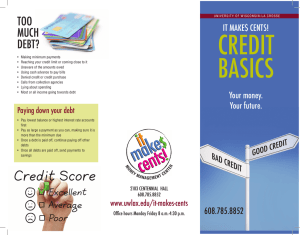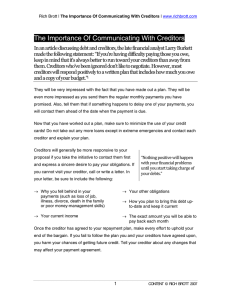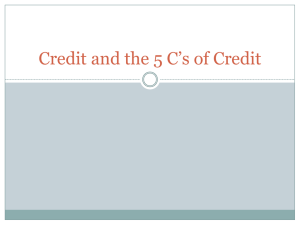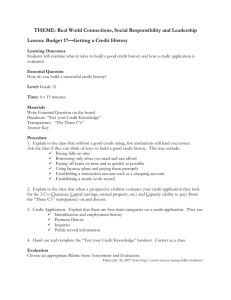Dealing with a drop in income
advertisement
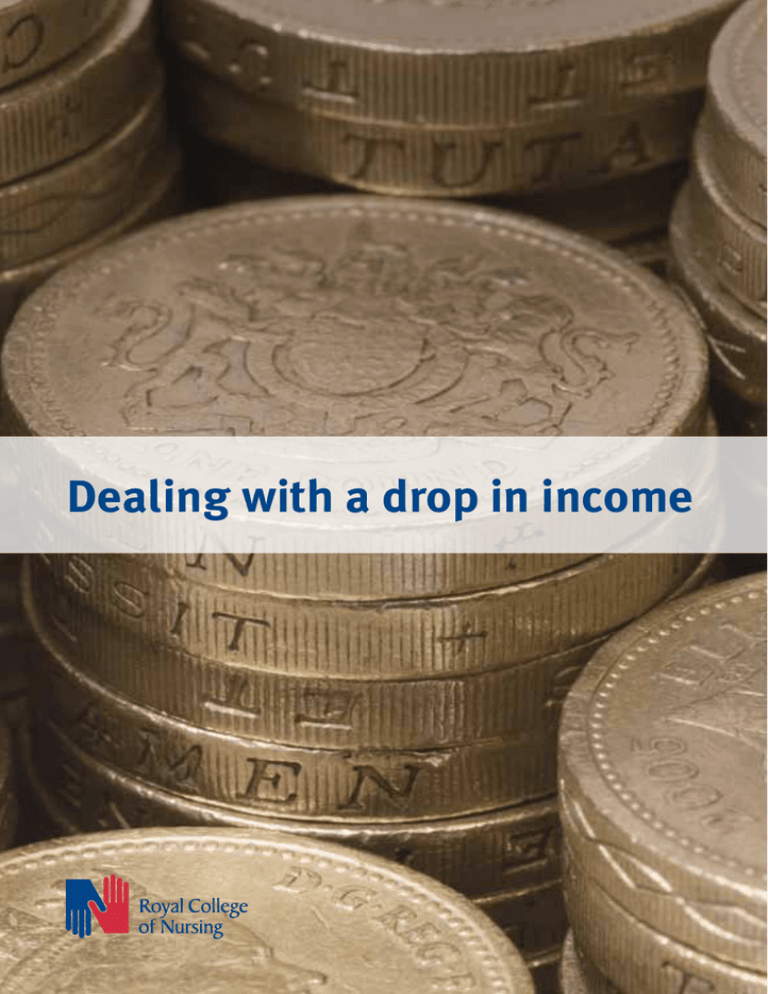
Dealing with a drop in income 2 Royal College of Nursing Dealing with a drop in income 3 When you are faced with a change of circumstances, such as a reduction in your working hours, ill health, loss of a job, cut backs on extra shifts or increased living costs it can be hard to keep on top of your finances. For some people, this may be a short-term concern but others may be faced with longer-term financial difficulties. Having debts or bills to pay can feel like a never ending problem. Missing payments leads to increasing debt and creditors can put you under a lot of pressure. This leaflet will provide you with advice on the steps you can take to try and alleviate some of the problems that may arise from an unexpected drop in income. What can we do? Whatever the circumstances, the RCN Welfare Rights and Guidance Service can provide money advice and debt counselling. We can look at your overall financial situation and establish if you are receiving all the money that is available to you. An adviser can: • c heck that you are receiving all the statutory benefits and tax credits that you are entitled to, including possible help with your mortgage. This is especially important if you are off work due to illness, or you or your partner has lost your job •we also administer the RCN Benevolent Fund, which provides grants to certain members and retired members who are experiencing financial hardship and are struggling to meet their essential day to day living expenses • look at your wider financial situation and help you identify realistic ways of increasing your income and reducing your expenditure • assist you in identifying which of your debts to deal with first • provide information to your creditors about your financial situation and work out affordable offers of repayment •explore longer term solutions such as final settlements or insolvency where appropriate. 4 Royal College of Nursing What can you do? It is best to approach your debts step by step. You cannot make an offer of repayment or consider other options until you know what you can afford to pay. You don’t know what you can afford to pay until you have worked out how much money you need to live on. 1) Work out what you need to live on so you can see what is left available to pay your debts Our advisers can help you with a personal budget which can be used as a statement to explain your financial situation to creditors and to work out affordable offers of repayment. 2) Check that you owe the money In some cases, creditors may not have acted properly in the way they provided credit or money. Your name may not be on the credit agreement. If your debt is over six years old and you haven’t heard from the creditor, it may not be enforceable. The account balance may be wrong or you may have wrongly incurred charges. Our advisers can check these issues and advise you on your rights and liability for the debts. 3) Make offers to the most important creditors first – priority debts Priority debts Action creditor can take Mortgages or secured loans Repossession, eviction from your home Rent Repossession, eviction from your home Council taxCourt action, bailiffs, take money from your wages/benefits, imprisonment Gas/electricity Disconnect you Magistrates court fines Court action, bailiffs, imprisonment Maintenance/child support Take money from your wages/ benefits, bailiffs, imprisonment Hire purchase Repossession of essential goods Dealing with a drop in income 5 If you have any of the debts listed on the previous page, you should ensure that what money you have is used to pay these debts first before any others. 4) Once you have made repayment arrangements for your priority debts, you can deal with the other debts you have 5) If your creditors start court action, don’t panic as you can still make offers of repayment and stop further action being taken against you Contact the RCN Welfare Rights and Guidance Service for advice on 0345 408 4391 Mortgage Your mortgage repayments may be your single largest outgoing and is a priority debt. If you are having trouble meeting your monthly payments, or anticipate payment difficulties, talk to your lender and explain what is causing the problem. There are various measures your lender could put in place to prevent you getting into arrears and reduce monthly payments. These include: • agree to change or lengthen the term of your loan • accept reduced payments from you for a fixed period • add your debt to the amount you have borrowed. Strategies for dealing with your mortgage payments and secured loans will depend on your personal circumstances. We can give you advice on approaching your lenders and about government schemes that are in place to help certain people who have missed payments on their mortgage. Rent If you owe money to your landlord and you cannot make an arrangement to pay arrears, then you could lose your home. There are different types of tenancy and some have more rights than others. If you are unsure what type of tenancy you have, seek advice straight away. 6 Royal College of Nursing Dealing with a drop in income 7 To prevent repossession action in court, you should try and get an agreement in place to pay off any arrears. Landlords will normally want the usual rent plus an amount towards the arrears. Our advisers can help you work out what money you have available to make an offer and we can advise you if you are eligible for any housing benefit to help towards the cost of your rent. If, after ensuring that you are receiving all the benefits you are entitled to, you do not have sufficient income to meet payments to non-essential creditors, seek advice about the best options for your particular circumstances. Informal arrangements These are usually most suitable for the short-term loss of income where payments are anticipated to increase in future. Work out how much money you have available to offer your non-essential creditors. Start by listing all your income and essential expenditure on a weekly or monthly basis – this will enable you to see how much money you have left to offer as repayment to your non-essential creditors. The Welfare Rights and Guidance Service can provide you with a standard financial statement that you can present to creditors. If you have no money available, you can offer token payments to your creditors. The fairest way to distribute the money between your creditors is called ‘pro-rata’ offers. It is usually accepted by creditors and is the method used by the courts. You calculate pro-rata payments as follows: a)contact all your non-essential creditors to find out how much you owe them b) add up all the debts to work out your total debt c)multiply each individual debt by the amount of money you have available for creditors d)divide that by the total debt owed to calculate the amount you should pay to each creditor. 8 Royal College of Nursing Sending a copy of your personal budget with a covering letter to each creditor with an offer of payment is an effective method of persuading them to accept reduced payments. Send your first payment with your letter and ask them to suspend any interest charges to help you reduce the outstanding balance quicker. Do not offer more than you can afford! You will not be able to maintain payments and any agreement with your creditors is likely to be withdrawn if you miss payments. If you are dealing with a bank loan or overdrawn account, do not send payment until your offer of payment has been accepted. Some banks will continue to take full monthly loan repayments until an agreement is in place. You will probably need to open a basic bank account to receive your regular income as this is the often the easiest way of regaining control of your finances and budgeting. If you have standing orders or direct debits arranged on your old account, you will need to cancel these to avoid unauthorised borrowing charges, and make alternative arrangements to pay essential bills. Getting creditors to accept payment proposals Always put your offer of payment in writing to your creditors and keep copies. This avoids dealing with them on the telephone where they may pressure you to make an increased offer of payment that you cannot afford. It also serves as an official record for the courts, of your attempt to negotiate should your creditors take court action. •Creditors may not accept your offers of payment and they may refuse to suspend interest on your accounts. •You may need to be persistent in your negotiations and they can usually be persuaded to accept your offer. •Some creditors will not accept below a minimum level of repayment until you have defaulted on the credit agreement you have with them. Dealing with a drop in income 9 In these cases, your account will usually be passed to a debt collection agency to negotiate payments and it is often easier at this point to have your offer accepted. Whether a creditor accepts your offer or not, you should start paying the amount offered as a gesture of goodwill. If you pay this by postal order, they have to accept the payment. If they have rejected your proposal, write again reiterating the offer and explain that it is all you can afford. What to do if your creditors take court action Creditors sometimes falsely imply court action in their letters in an attempt to get you to agree to payments that you cannot afford. •If court action is taken, you will receive a claim form from the county court. You will need to complete the reply form which is called the admission form and should include information from your personal budget sheet. •Complete the form and send it back to the creditor (claimant). There is a time limit of 16 days from the date on the postmark to return the form. Contact an adviser at the RCN Welfare Rights and Guidance Service for advice about completing the form. If a creditor doesn’t accept your offer, the court will decide on the level of payment you must make. If you have calculated your offers on pro rata basis using your personal budget sheet and it is reasonable, the court is likely to accept it. The court will stop interest charged on most ordinary credit agreements. When a court order is made If your circumstances change or you cannot afford monthly payments set through a court order, you can apply for a reduction using form N245 which you can get from your local county court. There is a fee of £25 unless you are in receipt of a means-tested benefit, in which case you can get exemption from the fee (you will need to complete form EX160). You can download these forms from www.courtservice.gov.uk. 10 Royal College of Nursing Dealing with a drop in income 11 Depending on your personal circumstances and the extent of your financial difficulties, and total amount of debt, there are other strategies for dealing with your debts that you may wish to consider. Debt management plans I have heard of companies who will get my debt payments reduced. How can I find out if they are any good? The first thing to remember is that you do not need to pay for this type of help. If you have sufficient available income (usually £100 per month) to make reduced payments to at least three non-essential creditors, you can get free help from the following organisations free of charge; both organisations can negotiate and distribute payments to your creditors on your behalf. •Payplan – visit www.payplan.com or call 0800 085 4298. •CCCS – www.cccs.co.uk or call 0800 1381111. Bankruptcy Bankruptcy is a strategy for dealing with debts that you cannot pay. If you have large debts and it is likely to take you a long time to pay these through reduced repayments or you have no means of repaying them, you might consider bankruptcy as an option. However, if you have assets of value this may not be an appropriate option for you. If you own your home, it could be sold as an asset in bankruptcy. In most cases bankruptcy proceedings will last one year and most people are discharged from their bankruptcy at this point. It has the advantage of removing the anxiety and pressure of dealing with creditors as once a person is bankrupt, their creditors must deal with the official receiver or trustee. You can obtain a free guide to bankruptcy from the Insolvency Service website at www.insolvency.gov.uk. Contact one of our advisers on 0845 408 4391 for further advice if you are considering bankruptcy. 12 Royal College of Nursing Individual voluntary arrangement (IVA) An IVA is an alternative to bankruptcy. It is a formal arrangement through the courts which is set up by a licensed insolvency practitioner. It may be an appropriate strategy for you if it would take you a long time to clear your debts through reduced payments. A formal proposal is made to your creditors to pay part or all of your outstanding debt and the agreement reached is binding on each of your creditors. An IVA would be an appropriate strategy if you have means of offering your creditors some form of repayment. It will usually last up to five years and may be funded in the following ways: a)by offering regular repayments to the IVA from surplus income (money left after paying essential expenditure) b)by selling an asset and offering the proceeds to creditors in full and final settlement c)by offering a lump sum from a relative, friend or third party who is prepared to help. An insolvency practitioner will usually offer a free consultation to determine whether an IVA is an appropriate strategy. The fees for setting up and supervising an IVA can be high, however, some insolvency practitioners will receive payment from the monthly repayments into the IVA, rather than a separate fee. Please contact one of our advisers if you have further questions about IVAs. Dealing with a drop in income 13 Debt relief order (DRO) A debt relief order is an order you can apply for if you can’t afford to pay off your debts. Debt relief orders are administered by the official receiver through the Insolvency Service. To apply for a DRO: •you must have qualifying debts of £15,000 or less. These debts must be of a certain type •you have a low income •you have spare available income of £50 or less a month after paying your normal household expenses. A debt relief order usually lasts for a year and during that time, none of your creditors will be able to take action against you to get their money back. At the end of the year, you will be free of all the debts listed in the order. You cannot apply for a debt relief order if you: •own things of value or have savings of over £300 •own a vehicle worth more than £1,000 or less unless it has been specially adapted because you have a physical disability •have a private or employer pension fund worth over £300. The DRO will cost you £90 but you can pay this in instalments over six months. You can only apply for a debt relief order online through an approved third party, or intermediary. An intermediary is usually a skilled debt adviser, who can advise whether you meet the conditions, has been given permission to complete the forms and applies for the order on your behalf. Please contact one of our advisers if you have further questions about DROs. 14 Royal College of Nursing Can I get credit in the future? Credit reference agencies hold information about your credit agreements (including any arrears), county court judgments (CCJs), IVAs, bankruptcy orders and DROs. A lender can only pass on information about your credit agreements with your consent. However, you usually give this consent when you sign the credit agreement. Credit reference agencies provide information with your consent, so that a company can make a decision about whether to lend you money. The agency will leave the information on your file for six years. Details on magistrate court fines or council tax debts are currently not kept by the credit reference agencies. Don’t let your debt problems get on top of you, talk to an adviser at the RCN Welfare Rights and Guidance service to help you regain control of your financial situation. Dealing with a drop in income 15 The RCN represents nurses and nursing, promotes excellence in practice and shapes health policies. RCN Welfare Rights and Guidance 20 Cavendish Square London W1G 0RN Telephone: 0345 408 4391 Lines are open 9.30am – 1pm and 2pm – 4.30pm Email: wrg@rcn.org.uk or visit www.rcn.org.uk September 2009 Publication code 003 543
